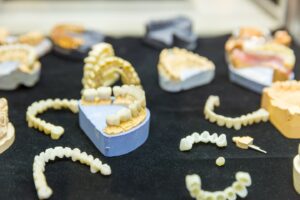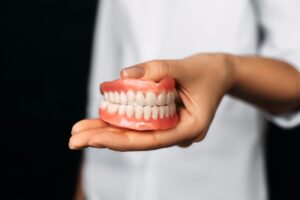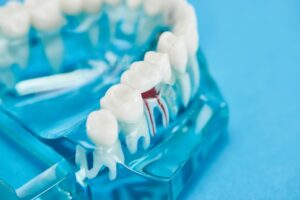Wisdom teeth extraction is a common dental procedure that involves removing the third molars, also known as wisdom teeth, from the back of the mouth. While not everyone needs to have their wisdom teeth removed, it is often recommended if they are causing problems or are at risk of causing future problems. Proper preparation before the procedure is essential for ensuring a smooth and successful extraction.
Understanding Wisdom Teeth
Wisdom teeth are the last set of molars to emerge, usually between the ages of 17 and 25. They are called “wisdom teeth” because they typically appear when a person is older and presumably wiser. However, these late-emerging teeth often cause complications due to lack of space in the mouth. They can become impacted, meaning they do not fully erupt, or grow at an angle that can cause problems for adjacent teeth.
If left untreated, impacted wisdom teeth can lead to a variety of problems, including pain, infection, crowding of other teeth, and even cysts or tumors. Therefore, it is important to consult with a dental professional if you are experiencing any symptoms or have concerns about your wisdom teeth.
The Need for Wisdom Teeth Extraction
There are several common reasons why wisdom teeth may need to be extracted:
- Impacted wisdom teeth that are causing pain or discomfort
- Wisdom teeth that are causing dental crowding or misalignment of other teeth
- Infections or gum disease caused by partially erupted wisdom teeth
- Presence of cysts or tumors around the wisdom teeth
It is important to address these issues promptly, as the longer wisdom teeth are left untreated, the higher the risk of complications and more difficult their removal can become.
Preparing for Your Wisdom Teeth Extraction
Preparing for your wisdom teeth extraction begins with consulting with a dental professional. They will evaluate your specific case and determine the need for extraction.
Before the procedure, your dentist may order X-rays to assess the position and condition of your wisdom teeth. These X-rays can help the dentist determine the best approach for extraction and identify any potential complications.
During the consultation, it is important to disclose any medications or supplements you are currently taking. Some medications, such as blood thinners and certain supplements, may need to be adjusted or temporarily stopped before the procedure to minimize the risk of excessive bleeding during and after the extraction.
Medications and Supplements
It is important to provide your dental professional with a complete list of all medications and supplements you are currently taking. This includes prescription medications, over-the-counter drugs, and herbal supplements. Certain medications, such as blood thinners, may need to be adjusted or temporarily stopped before the wisdom teeth extraction to minimize bleeding risks. Your dental professional will provide specific instructions based on your individual case.
Diet and Hydration
Having a healthy diet and staying hydrated before and after your wisdom teeth extraction can help with the healing process. It is best to eat a balanced diet rich in vitamins and minerals to support your immune system. Avoiding hard or sticky foods for a few days before the procedure can help minimize discomfort after the extraction. Additionally, it is important to stay hydrated by drinking plenty of water, as dehydration can impede the healing process.
Oral Hygiene
Maintaining good oral hygiene leading up to your wisdom teeth extraction is important for preventing infection and ensuring a successful procedure. Brush your teeth at least twice a day and floss regularly to remove any plaque or debris. Pay special attention to the area around your wisdom teeth, as they can be more difficult to clean due to their positioning at the back of the mouth. Your dental professional may recommend using an antibacterial mouthwash to reduce the risk of infection.
What to Expect During the Procedure
Before the wisdom teeth extraction procedure, the dental professional will discuss the anesthesia options with you. The most common types of anesthesia used for wisdom teeth extractions are local anesthesia, sedation anesthesia, and general anesthesia.
Local anesthesia is typically used for simple extractions and involves numbing the area around the wisdom teeth. This allows you to remain awake during the procedure, but you will not feel any pain. Sedation anesthesia is often used for more complex extractions or for patients who experience anxiety or fear. It involves administering medication to help you relax or even sleep throughout the procedure. General anesthesia is less commonly used and often reserved for complex cases or patients with certain medical conditions. It involves putting you into a state of complete unconsciousness during the procedure.
During the extraction, the dental professional will make an incision in the gum tissue and remove the wisdom teeth. The procedure can take anywhere from a few minutes to an hour, depending on the complexity of the case. Your dentist will provide you with detailed instructions on what to do before the procedure, including fasting guidelines if general anesthesia will be used.
Surgical Technique
There are different surgical techniques used for wisdom teeth extractions, and the choice of technique may depend on factors such as the position, size, and condition of the teeth. The most common techniques include:
- Simple extraction: This technique is used when the wisdom tooth has fully erupted and is in a relatively accessible position. The tooth is grasped with dental instruments and gently rocked back and forth to loosen it. Once loosened, it can be easily extracted using forceps.
- Surgical extraction: This technique is used when the wisdom tooth is impacted or has not fully erupted. An incision is made in the gum tissue to access the tooth and, if necessary, a small amount of bone may be removed to fully extract it. Stitches may be required to close the incision.
- Sectioning: This technique is used when a wisdom tooth is fully or partially impacted and the roots are deeply embedded in the jawbone. The tooth may be sectioned into smaller pieces to facilitate its removal. This technique is often necessary for more complicated cases.
Your dental professional will assess your specific case and determine the appropriate surgical technique for your wisdom teeth extraction.
Possible Risks and Complications
While wisdom teeth extractions are generally safe procedures, there are potential risks and complications that can arise. Some possible risks include:
- Pain and discomfort: It is common to experience some pain and discomfort after the extraction, but this can generally be managed with pain medication prescribed by your dentist.
- Swelling and bruising: Swelling and bruising around the extraction site are also common and should subside within a few days.
- Infection: There is a risk of infection after the extraction, especially if proper oral hygiene practices are not followed. Your dental professional will provide instructions on how to minimize the risk of infection.
- Dry socket: Dry socket is a condition where the blood clot that normally forms after the extraction becomes dislodged or dissolves, leading to delayed healing and intense pain. Your dental professional will provide instructions on how to prevent dry socket.
It is important to follow your dental professional’s post-operative care instructions and notify them if you experience any severe or prolonged symptoms.

Recovery and Aftercare
After the wisdom teeth extraction, it is important to give yourself time to recover and follow the post-operative care instructions provided by your dental professional. Here are some tips for a smooth recovery:
- Take it easy: Rest for the first 24 hours after the procedure and avoid any strenuous activity that could dislodge blood clots or hinder the healing process.
- Manage pain and swelling: Apply an ice pack to your face in the first 24 hours to help reduce swelling. Take any prescribed pain medication as directed by your dentist to manage any discomfort.
- Control bleeding: Bite down gently on the gauze placed by your dentist to control bleeding. Change the gauze as needed and avoid excessive spitting or rinsing, as this can prolong bleeding.
- Follow a soft diet: Stick to soft and easy-to-chew foods for the first few days after the extraction. Avoid hot, spicy, or crunchy foods that can irritate the extraction sites.
- Maintain good oral hygiene: Continue to brush your teeth gently, avoiding the extraction sites. Use a mouthwash recommended by your dental professional to help prevent infection.
It is normal to experience some pain, swelling, and bleeding after the extraction, but these symptoms should gradually improve within a few days. If you have any concerns or if your symptoms worsen or persist, contact your dental professional.
Follow-up Appointments
Attending follow-up appointments is an important part of the wisdom teeth extraction process. Your dental professional will want to monitor your healing progress and check for any signs of infection or complications. It is important to keep these appointments and follow any additional instructions provided by your dentist.
Frequently Asked Questions
Q: Will removing my wisdom teeth affect my facial appearance?
A: No, removing your wisdom teeth will not affect your facial appearance. These teeth are located at the very back of the mouth and have no impact on the overall shape or structure of your face.
Q: Is wisdom teeth extraction a painful procedure?
A: The procedure itself is typically not painful, as local anesthesia or sedation anesthesia will be used to ensure your comfort. However, it is normal to experience some pain and discomfort after the extraction. Your dentist will provide you with pain medication to help manage any discomfort.
Q: How long does it take to recover from wisdom teeth extraction?
A: Recovery times can vary depending on the individual and the complexity of the extraction. Most people can expect to fully recover within a week or two, although some swelling and discomfort may persist for a little longer. It is important to follow your dentist’s post-operative care instructions to ensure a smooth recovery.
Q: Can I drive myself home after the procedure?
A: If you receive sedation anesthesia or general anesthesia, it is not safe to drive yourself home after the procedure. These forms of anesthesia can affect your coordination and judgment. Make arrangements for someone to drive you home and stay with you for the first 24 hours after the procedure.
Q: Do I need to remove all my wisdom teeth?
A: Not everyone needs to have all their wisdom teeth removed. The need for extraction depends on your specific situation and whether or not the wisdom teeth are causing problems or are at risk of causing future complications. Your dental professional will evaluate your case and recommend the best course of action.
Conclusion
Preparing for your wisdom teeth extraction is crucial for ensuring a smooth and successful procedure. By consulting with a dental professional and following their guidance, you can minimize the risk of complications and promote a faster recovery. Remember to disclose any medications, follow pre-operative instructions, maintain a healthy diet, practice good oral hygiene, and attend follow-up appointments for the best outcome.
Wisdom teeth extraction may sound daunting, but with proper preparation, you can have a positive experience and protect your overall oral health. For those in Miami, Florida, Ultrasmile Miami offers a variety of dental services, including wisdom teeth extraction, provided by the best professionals. Their team is dedicated to delivering high-quality care and ensuring the best possible experience for their patients.







